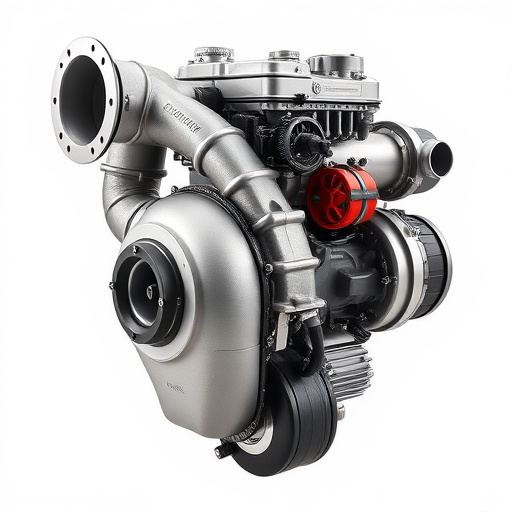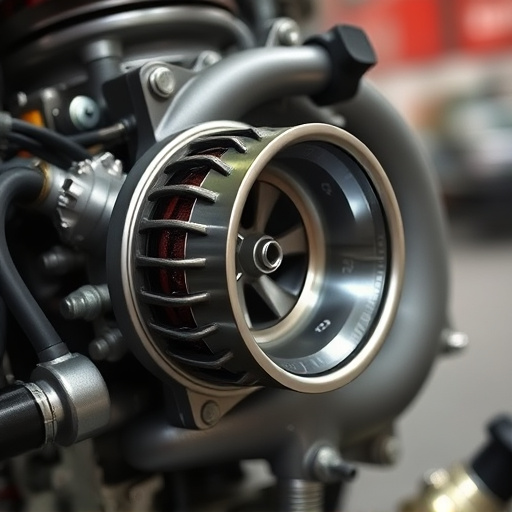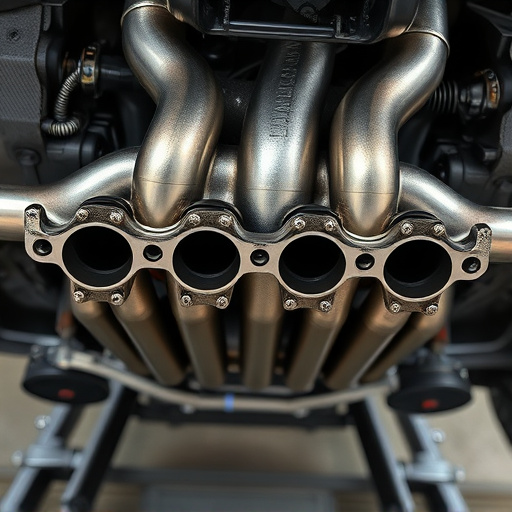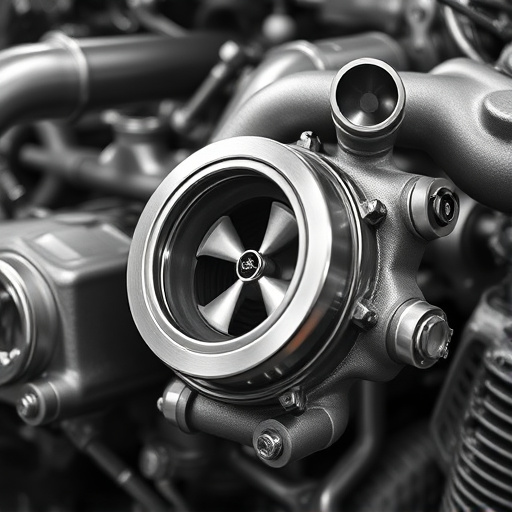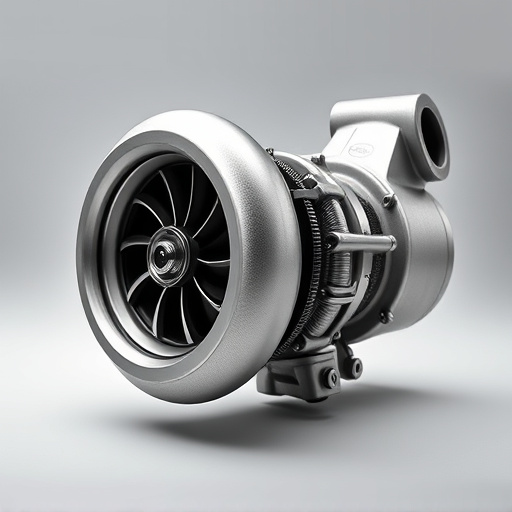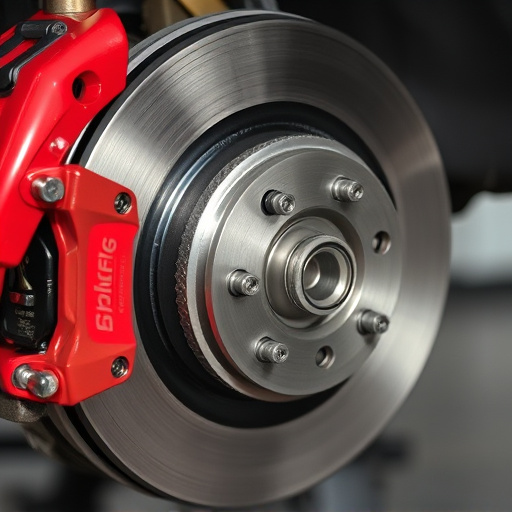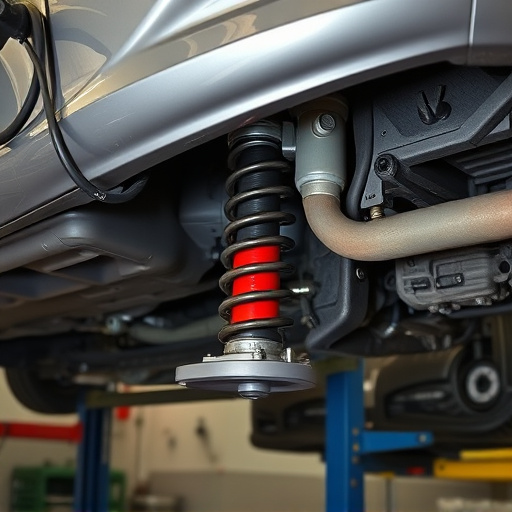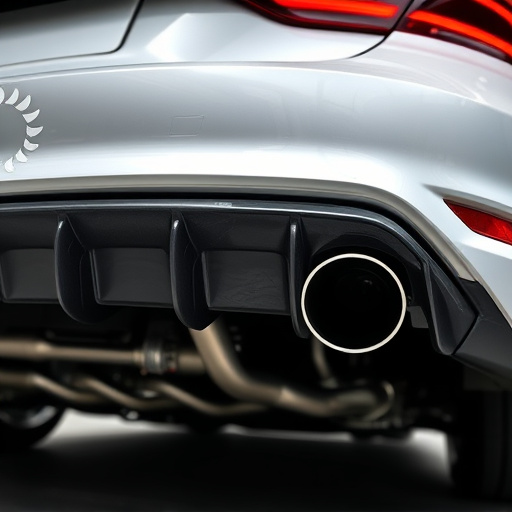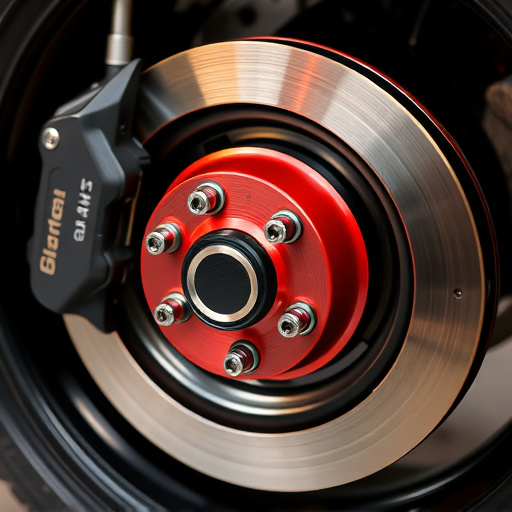Brake pads and rotors are key components enhancing vehicle fuel efficiency by reducing energy waste during deceleration. Worn or inferior pads can impede braking force transfer, leading to increased friction and higher fuel consumption. Advanced rotors designed for optimal cooling prevent heat buildup, enabling smoother stops, improved vehicle performance, and notable gains in overall fuel efficiency. Upgrading to high-quality brake pads and regular maintenance is a simple yet effective way to enhance both braking performance and fuel economy, especially beneficial for vehicles with high-performance exhaust or intake systems.
Brake pads and rotors, often overlooked components, play a pivotal role in enhancing fuel efficiency. These unsung heroes directly impact your vehicle’s performance and fuel consumption. In this article, we’ll explore how these parts contribute to better mileage. By understanding their function and the science behind them, you can make informed decisions about upgrades, leading to improved fuel economy without compromising safety. Let’s dive into the world of brake pads and rotors to uncover their hidden potential.
- Understanding Brake Pads and Rotors: The Unseen Heroes of Fuel Efficiency
- How Brake Components Impact Fuel Consumption
- Upgrading to Efficient Brake Systems: A Step Towards Better Mileage
Understanding Brake Pads and Rotors: The Unseen Heroes of Fuel Efficiency
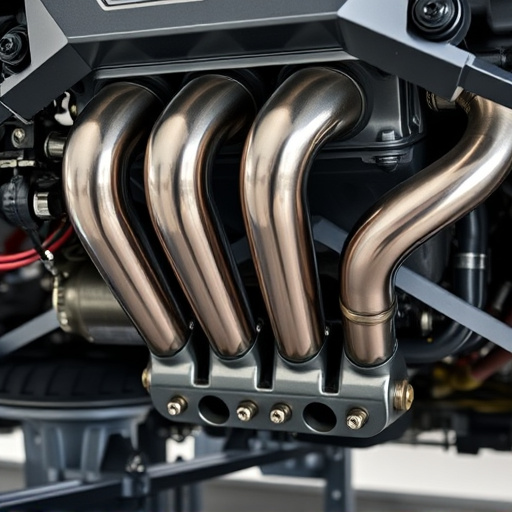
Brake pads and rotors are often overlooked components of a vehicle’s critical braking system. These unseen heroes play a pivotal role in enhancing fuel efficiency, which is essential in today’s eco-conscious world. Efficient braking allows vehicles to slow down faster, reducing the amount of energy wasted as heat during deceleration. High-performance brakes, featuring superior pad and rotor materials, can significantly improve vehicle performance by minimizing drag and maximizing control, ultimately contributing to better fuel economy.
When brake pads are worn out or inferior in quality, they may not effectively transfer braking force to the rotors, leading to increased energy loss. Conversely, advanced brake rotors designed for optimal cooling and reduced heat buildup enable more efficient braking, minimizing energy wastage. By investing in performance brakes with high-quality pads and well-engineered rotors, drivers can expect smoother stops, improved vehicle performance, and notable gains in overall fuel efficiency.
How Brake Components Impact Fuel Consumption
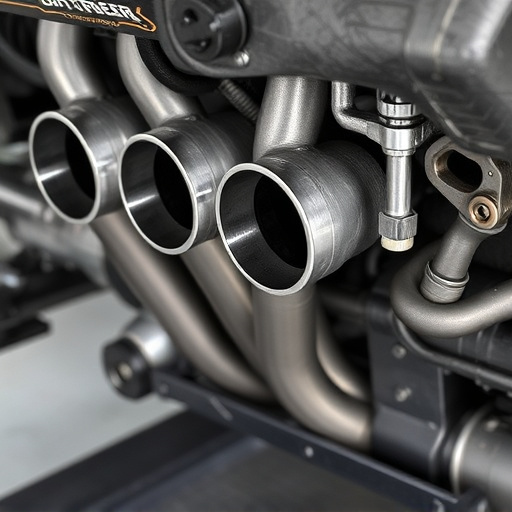
Brake pads and rotors play a significant role in a vehicle’s overall fuel efficiency. The relationship between brake components and fuel consumption might seem indirect, but efficient braking systems directly contribute to better gas mileage. When brake pads and rotors are worn out or poorly maintained, it can lead to increased friction within the braking system. This extra friction demands more energy from the engine, which in turn consumes more fuel.
Moreover, outdated or damaged brake components can cause a vehicle’s brakes to become less responsive. Consequently, drivers may need to apply more force when stopping, leading to prolonged engagement of the braking system. This not only increases wear and tear on the brakes but also elevates the energy expenditure required for deceleration, ultimately impacting fuel economy. Upgrading to high-quality brake pads and rotors, along with regular maintenance, can mitigate these issues, resulting in smoother stops, reduced engine load during braking, and improved overall fuel efficiency. Additionally, considering upgrades such as cold air intakes and muffler tips—which also enhance engine performance—in conjunction with well-maintained brake systems can further contribute to significant savings at the pump.
Upgrading to Efficient Brake Systems: A Step Towards Better Mileage
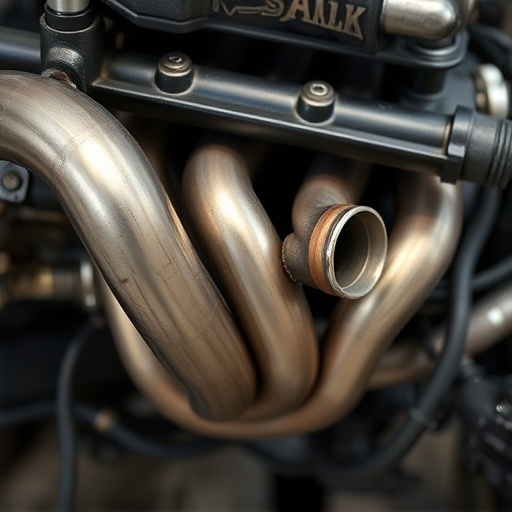
Upgrading to efficient brake systems is a simple yet effective strategy to enhance your vehicle’s fuel efficiency and overall performance. Brake pads and rotors play a pivotal role in this process by significantly reducing energy loss during braking. Modern, high-performance brake components are designed to minimize heat transfer from the brakes to the surrounding parts of the car, ensuring that more energy from the engine is utilised for propulsion.
This upgrade can be particularly beneficial if your vehicle comes equipped with a performance exhaust or cold air intake system, as these modifications often lead to increased engine output and power. By investing in superior brake pads and rotors, you can maintain optimal braking efficiency even under high-performance driving conditions, contributing to better fuel mileage and a smoother driving experience.
Brake pads and rotors, often overlooked, play a significant role in enhancing fuel efficiency. By understanding their impact on fuel consumption, drivers can make informed decisions when upgrading their brake systems. Investing in high-quality, efficient brake components not only improves mileage but also contributes to a smoother, safer driving experience. So, the next time you consider vehicle upgrades, remember that even small changes, like replacing old brake pads and rotors, can lead to substantial fuel savings.

